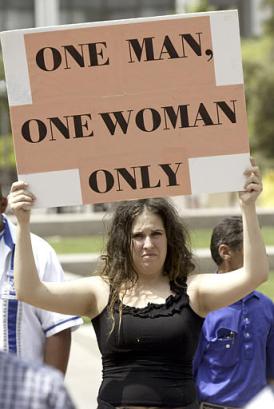Since I don’t have the time right now that my sexy colleagues do to read an author’s collected works and interview some writer about the pressing issues of the literary world, and since pith is the order of the day, the other night, I had a conversation with Good Ed and Bad Ed. Neither of them are authors, nor are the collective two half as interesting as Andrew Sean Greer. Good Ed is a nice, considerate entity living within my body who sometimes treats people to lunch, walks old ladies across the street, and the kind of guy you might take home to meet your parents. Bad Ed, by contrast, is the Loki to Good Ed’s inveterate angel. Bad Ed is known to scowl, drink too much, and offer scathing remarks without apology. What follows is my transcription, which took six days and several bottles of lager to get through before the tape inadvertently cut off.
ED: I notice that you’ve been reading Anita Diamant’s The Red Tent and that you were getting through the book only with complete reluctance.
GOOD ED: I’m sure Ms. Diamant is a nice woman. Perhaps the problems started with me. I must confess that, as an atheist, I don’t really have much of a religious background. So I may not be as familiar with Genesis as other folks are.
BAD ED: Shut up, bitch. A bad tale is a bad tale. The lady can’t write. “Ruddy” and “red” in the same sentence to describe that insufferable tent? “Impassive” and “without expression” in another sentence later in the book? What kind of shit is that? Two things that mean the same damn thing. I’ve got your red, ruddy, and rosy bluster right here.
GOOD ED: I don’t think you’re being fair. This was a neglected tale that needed to be expanded and elaborated upon. Feminist subtext and all.
BAD ED: Oh please. Expansion of an oft told tale? Don’t even pretend that you weren’t snoozing to Gregory Maguire’s Confessions of an Ugly Stepsister. I remember that you were one disappointed mofo when you were reading that puppy. You want feminist subtext? Go read Doris Lessing or Margaret Atwood.
GOOD ED: Can I give you a hug?
BAD ED: Hell no, bitch.
ED: Okay. Hold it. Time out, you two. I can see this conversation is getting heated and I haven’t even asked my second question. What prompted you to read this book?
BAD ED: That cute girl who recommended it.
GOOD ED: What?
BAD ED: You’d suffer another insufferable Rushdie novel for the opposite gender, wouldn’t you?
GOOD ED: Hardly an issue now, given that we’re going out with a very fantastic lady these days. And how dare you make this personal!
BAD ED: What’s that? Do I detect the whiff of dishonesty?
ED: Let’s be fair here and suggest that you were looking for alternatives.
GOOD ED: Fair enough.
BAD ED: Not fair at all. Be honest. How many books have you read with the intent of digging up these hazy analyses for a highly literate foxy lady?
GOOD ED: Again, not an issue. And premeditated reading? You’re insane. I genuinely dig Atwood.
BAD ED: Preventive reading. Why subject yourself to trash, sweetheart?
GOOD ED: The standards are high.
BAD ED: Dear Lord, you’re sounding like Laura Miller.
ED: Okay. Stop! Stop! This is not what I had in mind.
BAD ED: Hey, it was your idea to put us in the same room.
GOOD ED: Highly unprofessional. Let’s talk books. Maybe about how great Cloud Atlas was.
BAD ED: Since when did you care about being professional?
[Sounds of scuffling, whimpering and various shouts.]
GOOD ED: [unintelligible]
ED: But I…
[Here, the tape cuts out.]
